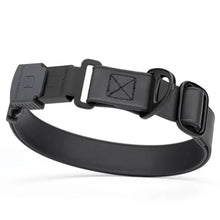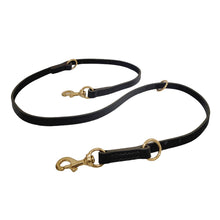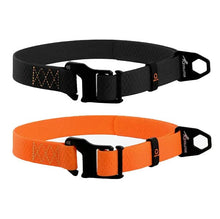Dog Dental Health & Dire Consequences

Only 7% of dog owners brush their dog's teeth daily. What a shockingly low number. But no big deal, a little calculus buildup never hurt a dog, right? Well, that isn't exactly true. Stick around to learn about proper dental hygiene for your canine friend or friends, and the consequences of not taking care of his or her teeth and gums.
A recent study was made public where 80% of dogs will develop some form of periodontal disease before the age of 2. Again, wow, these numbers are way more extreme than most people would think.

People used to have this same problem before brushing was common. It was right that it was a normal part of aging. It turns out that a modern diet didn't clean our teeth as well as eating fruits and vegetables and edible roots and tubers. Now we know that tooth loss is the direct result of a disease process and it is not normal. The same is happening to dogs. They're not eating raw meat and bones that scrape and clean the teeth. They're eating wet food or kibble. Neither are effective at keeping teeth clean, so the only way to have healthy teeth and gums is to brush your dog's teeth regularly.
Chew toys, and dental toys can help, but they're no replacement for brushing. There is one thing you can do that's quicker than brushing so you don't have to brush every day, and that would be dental wipes. Dental wipes and spray both kill germs that cause build up and bad breath.

I think most of us have seen older dogs with thick plaque buildup, but cavities are extremely rare in dogs. Cavities come from bacteria that convert sugars into acid. Dogs have a different saliva makeup and eat far less sugar than we do, so they're safe from cavities for the most part.
Unfortunately, they are at risk for periodontal disease. And periodontal disease not only causes bad breath, weak or missing teeth, and permanent gum recession; it can kill. The introduction of bacteria in the raw, diseased gum line can get into the bloodstream and attack the heart and kidneys. I asked a veterinarian how common it is for a dog to die of complications of periodontal disease, and was told "We can't say for sure, but I'd imagine it's more than anyone would be happy with ... by a lot."

Another big problem seems to be that most dog owners don’t recognize that their dogs have a problem until the disease has progressed to an advanced stage. Furthermore, dogs instinctively try to hide any pain or discomfort to avoid showing weakness, which makes it even harder to recognize that a problem is present.
Some warning signs of tooth and gum disease are:
● Red gums
● Bleeding gums
● Plaque
● Bad breath
● Blood in water or food bowls
● Thick saliva
● Favoring one side of the mouth
● Dropping food while eating
● Facial swelling
● Rubbing the face with the paws or on the floor
Brushing your dog’s teeth is the first defense against gum disease. Daily cleanings and the occasional professional cleanings at your vet are necessary to keep gum disease at bay. Again, don't forget the aforementioned dental wipes, they go a long way. And of course, dental chews require you to do nothing but open a bag, so they're good to keep handy!

Regular chew toys, especially those with surface texture that are made of rubber can help keep teeth clean as well. This being a German Shepherd Dog page, it's safe to assume that most of the people reading this have German Shepherd Dogs, and therefore have tons of rubber chew toys. But just in case: designs with lots of texture, like this high quality Herm Sprenger chew toy/treat dispenser are perfect for dental health. And yes, I know, a lot of Herm Sprenger fans who know the quality of everything this company puts out just audibly gasped while saying "Herm Sprenger makes TOYS?" Yes, they do!
Now, to wrap this all up. We've covered that just 7% of dog owners brush their dog's teeth daily. Up to 80% of dogs have tooth and gum disease before the young age of 2. And periodontal disease can be fatal (in humans too, take care of yourself as well as you take care of your dogs). Most of us aren't going to brush our dog’s teeth daily, we're just not. But with the proper chews and toys and the regular use of wipes and dental spray, you will be saving a bit of time. Brush as close to daily as you can. If you can't, a little 10 or 15 second dental wipe will go a long way. And always ask your vet to check out your dog's teeth. If they need to be cleaned, get it done. Sometimes it's pricey, depending on your vet, but better safe than sorry!

If you enjoyed this article or learned anything helpful, please leave a like and share with others. I don't think people talk much about canine dental hygiene, or the consequences of not trying to stay on top of things to prevent periodontal disease. Thank you again!
You may also like: Why Does My Dog Get Eye Boogers and What Can I Do About It?






















